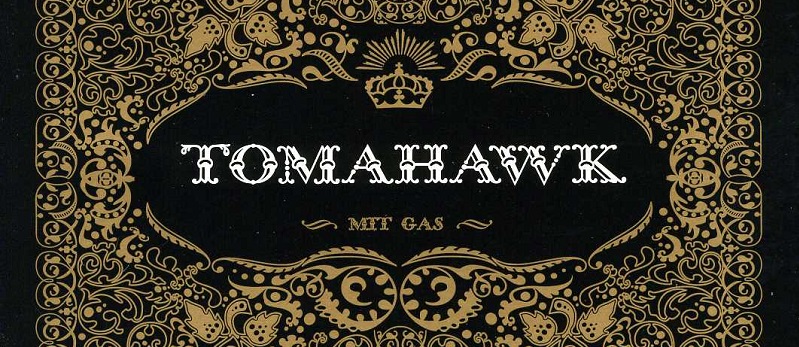There’s the long-winded, biographical sermons in hardcover and the big-screen, conspiracy-theory docu-dramas. There’s the name-dropping and tribute-conscious lesser knowns and, on the other end of things, the nakedness and frightening humanity of the Journals. But in large part, and at least musically speaking, Nirvana’s legacy in the years following Kurt Cobain’s 1994 suicide has been written by bootleggers and fans hungry to scrape below the surface of the trio’s three studio albums, the B-sides collection Incesticide, some occasional singles, and a restrained outpouring of posthumous releases.
And then along comes With the Lights Out. While countless pages could be (and have been) written about the four-disc boxed set’s incubation period, its midwives, its Lovely contractions, and its storied, labor-intensive delivery, one big, essential truth remains below that narrative: this is one of the band’s finest releases and arguably the most comprehensive statement to date on just where the musicians were coming from, the roads they took to get where they ended up, and even possibly where they were headed.
Grouped more or less chronologically, With the Lights Out begins shortly after the fabled Kurt Cobain/Dale Crover Fecal Matter demo with a March 1987 live performance of Led Zeppelin’s “Heartbreaker,” and the obscure early tracks are unreeled accordingly from there. Listeners get pre-Bleach gems like “Anorexorcist” (live on KAOS way back in 1987), the pummeling “If You Must” and “Pen Cap Chew” (both recorded by Jack Endino in 1988), rehearsal takes on lost-in-the-vaults songs like “Mrs. Butterworth,” and the Blew EP outtake “Token Eastern Song.” There’s three, scorching blues-rock tracks from Cobain’s 1989 Leadbelly tribute/cover ensemble The Jury (“They Hung Him on a Cross,” “Grey Goose,” “Ain’t it a Shame”), early recordings of tracks that only later surfaced on comps and as B-sides (a 1989 live recording of “Even in His Youth”), and solo acoustic works from Cobain that hinted at his later brilliance and, for some reason, are only being unearthed now (the breathtaking and truly beautiful “Clean up Before She Comes”).
Then, as Dave Markey’s 1991 film so plainly stated, punk broke and Nirvana became the giant it remained through Cobain’s tragic death. From the Nevermind period and Nirvana’s transition from Northwest indie Sub Pop to corporate-owned major DGC, listeners get another feast. Take early, get-your-blood-pumping Butch Vig mixes of “Smells Like Teen Spirit,” “Breed,” “Pay to Play” and “Verse Chorus Verse,” a big chunk of Cobain’s acoustic KAOS appearance with engineer/K Records figurehead Calvin Johnson (“Opinion,” “Lithium,” “Been a Son”), some catchy hooks and familiar odds and ends for die-hard fans (“Curmudgeon,” the Touch and Go single “Oh, the Guilt,” The Wipers’ covers “D7” and “Return of the Rat”), and another illuminating aside or two (the now even more heart-wrenching refrains of “Old Age,” circa 1991).
On the set’s third disc, as Nevermind slowly winds into In Utero, we get more new takes on familiar songs (rough-draft demos of “Rape Me,” “Heart Shaped Box,” and “Pennyroyal Tea”), some more comp. and B-side offerings (the biting “I Hate Myself and I Want to Die,” “Moist Vagina”), the non-US In Utero offering “Gallons of Rubbing Alcohol Flow Through the Strip,” and the No Alternative addictive hidden track “Sappy.” In the closing moments, we get some absolute gems from Cobain’s last months — home-recorded demos of the now-familiar “You Know You’re Right,” the unreleased “Do Re Mi,” and a spare, undated “All Apologies,” which appropriately closes the collection. The whole package is wrapped up with a fourth-disc DVD complete with an eclectic mix of live and studio performances, rehearsals, random but endearing band footage from the Bleach tour, and the Sub Pop video for “In Bloom.” The whole thing ends with a brief video montage layered over a surprising 1993 studio performance of “Seasons in the Sun,” with all the band members swapping instruments. The collection is nothing if not thorough and far-reaching.
It also should be said — and said loudly! — that the record is incredible to pop into your CD player and actually give a listen. So much psychobabble and nonsense has been scribbled in recent years about Cobain being a cross between the Bob Dylan of his generation and a latter-day Jesus Christ that many people seem to forget that, at the heart of things, Nirvana was a great rock band. This boxed set could go a long way toward straightening out the record. Its three CDs offer everything from classic definitions of grunge, bombastic punk, and furious hybrids of metal and hard rock to tender singer/songwriter ballads, acoustic ruminations, and more edgy and experimental fare. And, while Krist Novoselic continues to be an incredibly stable, understated presence in Nirvana’s sound and the band’s drummers (Grohl, Channing, Crover, Peters, and Burckhard are all here) lend the group a good piece of its venom and punch, With the Lights Out is another testament to the greatness and artistic vitality of Cobain. In the set’s photo-heavy liner notes, Sonic Youth guitarist and guest-writing scribe Thurston Moore says that Nirvana expressed anger, amusement, satire, defeat, emotion, and debate. More than a little bit of this seems wrapped up in the creative energies of Cobain. The evidence is all over the set, in every verse and hook and every refrain, in ever shard of feedback that creeps out during a poppy chorus, in the way Cobain’s voice shifts instinctively between a raspy, smoky whisper or an emotive wail into a throat-tearing roar. The man knew how to make great music.
Were Nirvana’s members the reluctant spokespeople of their generation? Did the impact of Nevermind or In Utero change the course of independent music? Should Kurt Cobain be sainted? These are questions better left to Rolling Stone and the world’s self-appointed cultural police. The bottom line on With the Lights Out, though, is pretty simple. Even though it operates on more than a few levels — as a historical document, as a kind of musical time capsule, as a “Thank You” to longtime fans — it’s a great collection. It features some great music, and it’s reminder of a great band that left many of our lives far too early.
I, for one, miss Cobain, but this collection goes a long way toward calming that hurt and his absence. – Delusions of Adequacy, Dec. 8, 2004
-30-




